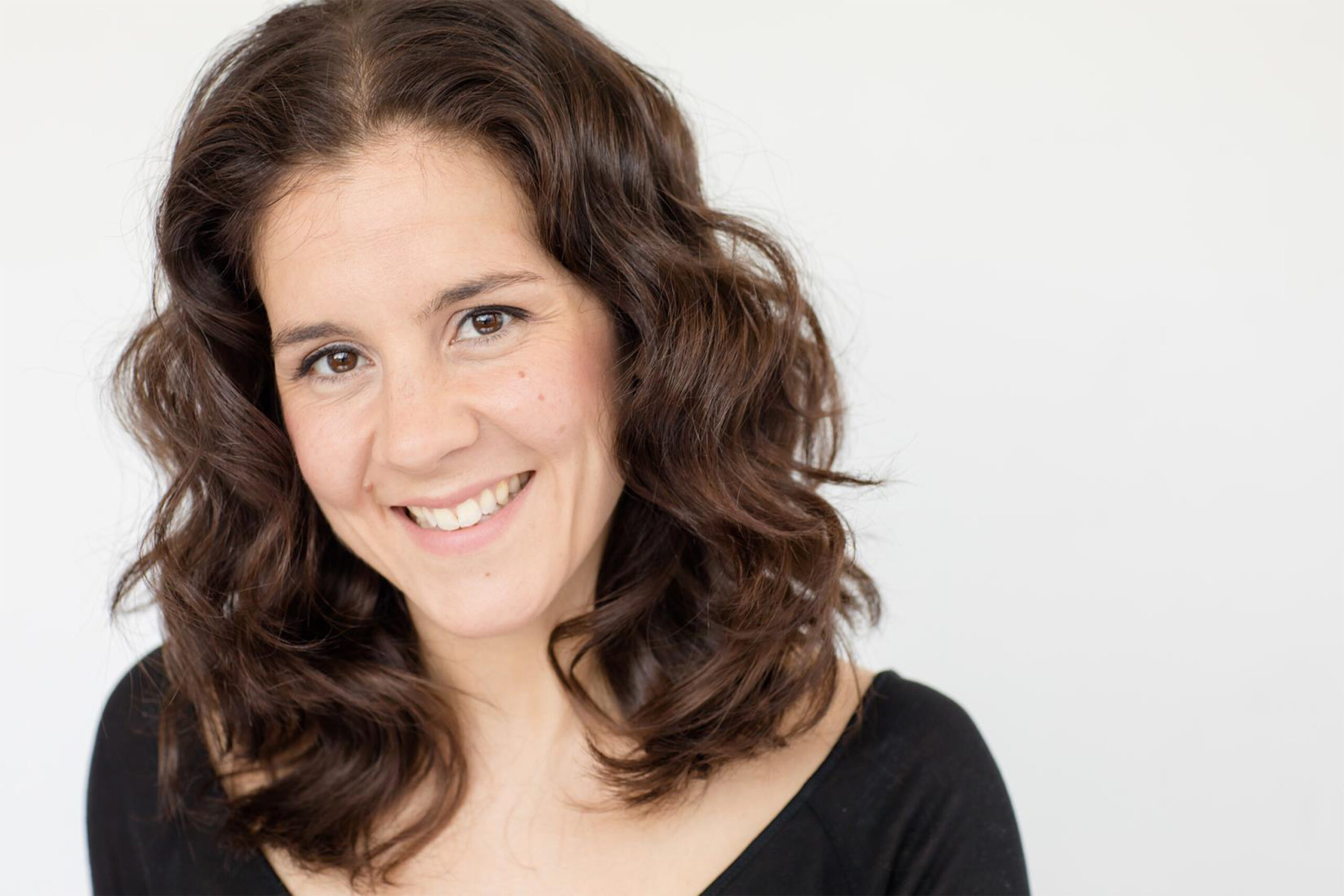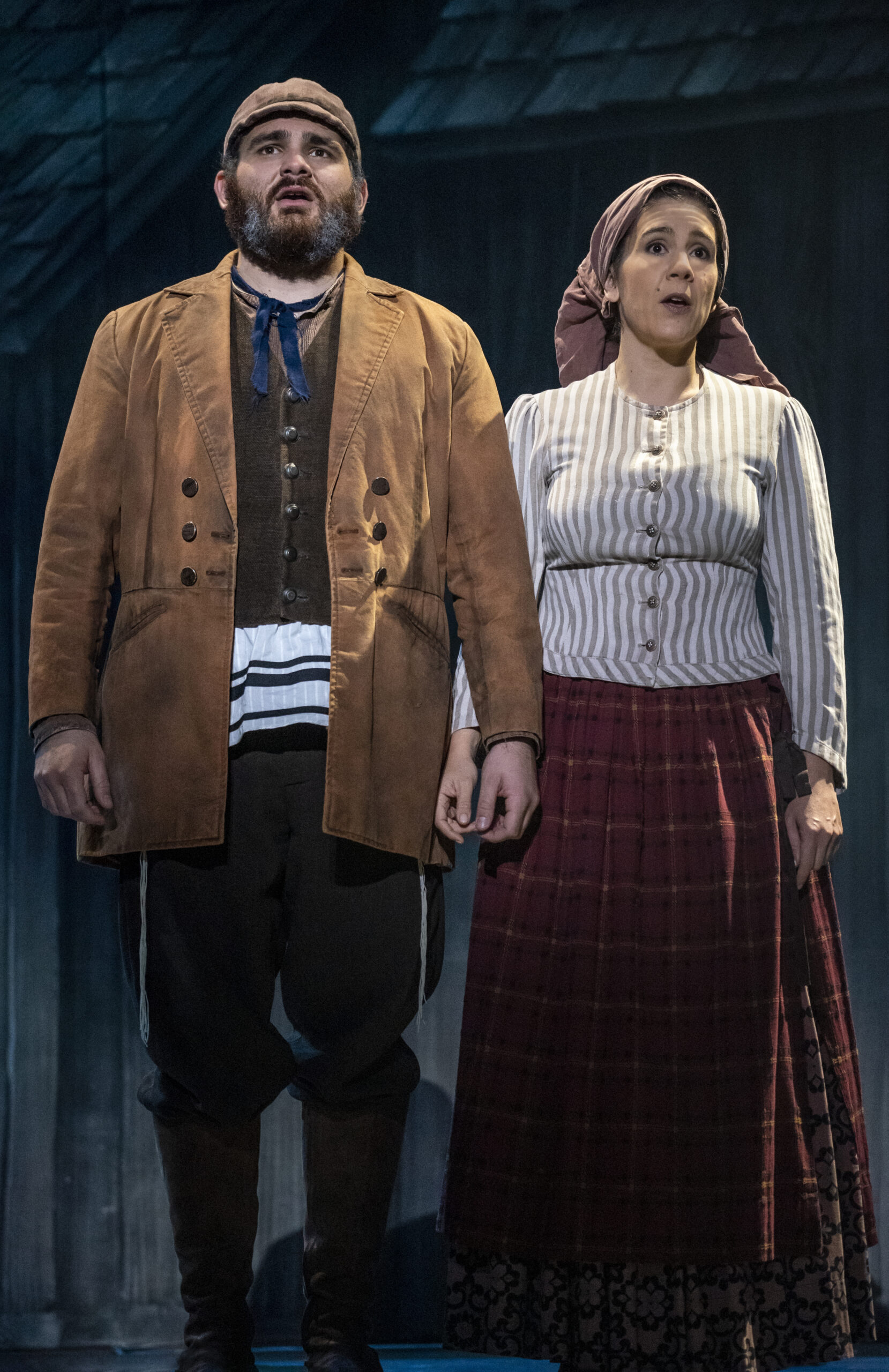
Maite Uzal, who plays Golde in the upcoming performance of Fiddler on the Roof (2/28 through 3/5_
Who: Maite Uzal
What: Actor, who plays Golde in the upcoming engagement of Fiddler on the Roof, which will play at the Saenger Theater February 28 through March 5.
Quoting the Quoted: “[Plays] get at the core of what it means to be a human being, and they explore the tissue of humanity.”
KC: How do you think someone comes about to change? What would Golde say about this process?
MU: Generally speaking, I think we have a fight or flight mode. I guess the most important step is to actually see what’s taking place, and then you have to make the decision of whether you want to be part of the change or not. Change is an adventure, and any type of change is the option for self-discovery, and patience is key.
Many other things in life teach us endurance and perseverance, which are not only important in life but also all connected, and we definitely need patience if we are going to move through change. As far as Golde is concerned, the answer to that question gets a little more tricky because she is a woman of action. She focuses on tasks, so I think she would say, ‘keep going. Focus and keep moving.’
When she’s presented with big changes in the play she doesn’t stop – unlike other characters who respond with more intellectual reactions. She is very intelligent; she is street-wise, and her strength is focusing on what activity needs to happen in order to move forward. Even when the first two daughters go against her wishes in order to get married, she immediately thinks about how to arrange a wedding. Throughout the play she thinks pragmatically. It’s interesting because her focus on action is her focus on love. When her husband asks her, in one of the best love songs ever written, ‘Do You Love Me?’ it’s a shock to Golde. She answers: of course I do. I wash your clothes. I clean your house. I’ve given you children. She is methodical in her approach to change and that’s also a sign of love for her.
Connecting the two, I’d say that we could come about to change through patient pragmatism.
KC: I’ve been thinking about namesakes. How does Golde’s namesake fit her character?
MU: I did research on this one year, but I’m second-guessing the answer. [Pulls phone to search name]. I remember the name connected to strength and nobility. I want to say that it means ‘gold,’ but I want to make sure. Yes, it’s a short form of ‘Germanic personal names composed of gold.’
I think that certainly matches her, interestingly enough. Gold is found in the earth; you have to dig for it and search for it in order to find it. Not only that, depending on the temperature, gold can take on many forms. It needs to be resilient, just like her.
She’s in a patriarchy that’s run by women, but at the end of the day, the last word is the father’s. At the end of the play she has a quarrel with Tevye, and he puts his foot down. Eventually, he changes his mind but in that moment, Golde cannot fight against him. She must be malleable.

Jonathan Hashmonay (Tevye) and Maite Uzal (Golde) in the North American tour of Fiddler on the Roof. (Photo by: Joan Marcus)
KC: What do you think would be Golde’s view on dating apps?
MU: [Laughing] It would not be aggressively negative, but at first – since she is a very spiritual woman of faith – she’d have to be convinced that the phone was not an evil spirit. Can you imagine her coming into this time and seeing this device [holds up phone]. She might think it was demonic.
But, after she came around to this technology, I think she would like dating apps. They take into consideration two people’s preferences, and that could be a sign of a match going well. A huge difference, of course, is that you can get out of the dating app and then back into it. I think that would cause her to have a very comedic initial outburst – she’s a master at dry humor.
KC: Tradition is not only in the play but in the creation of the play, or any play. What do you feel like are the traditions of plays and putting on plays that have helped you or audiences grow?
MU: This one has me thinking in a million directions. Being in a play that is a classic means that there’s a tradition in the acting itself. There are pieces that have been done over and over again, and that then becomes the tradition. The Nutcracker, for instance, is done during Christmas time; that’s now a tradition, and the repetition of that performance has made it a tradition for the stage and for peoples’ lives. If a play survives for a long time, there’s a quality in it or to it that people connect with; there’s a tradition already living inside of it, and the play names it.
In the opening monologue in Fiddler, Tevye talks about how stories help us know who we are and why we do the things we do. We go to these classic plays because they’ve resonated with people over time. There’s a guarantee with them, and they touch on a theme that’s somehow universal.
They get at the core of what it means to be a human being, and they explore the tissue of humanity.
They pose the existential questions that people might often think about, but to have them played out in front of them is cathartic, yes, and helpful in life. When that curtain comes up – no matter what kind of day I’ve had – I have the feeling of honor because for a couple of hours I get to give to the audience. I could entertain them. I could have an effect on their life that I know nothing about. Someone could be moved to connect with a family member, to answer a question they’ve been asking themselves, or to take on a challenge.
It’s a tradition of the unknown where we all get a couple of hours in life to think, rethink and be entertained.
What I think is so beautiful about the theater is that there’s this non-written agreement that when you cross that door into the theater, you believe what’s happening on stage even though you know it’s not actually happening. You believe the story, the characters, the events; it’s a tradition of trust.
You can see Maite Uzal star in the role of Golde in the upcoming engagement of Fiddler on the Roof, which will play at the Saenger Theater February 28 through March 5 as part of the 2023 Broadway in New Orleans season presented by Entergy.
 NOLAbeings Multimedia artist Claire Bangser created NOLAbeings as a portrait-based story project that marries...
NOLAbeings Multimedia artist Claire Bangser created NOLAbeings as a portrait-based story project that marries...  Voodoo in New Orleans: Reviving history: New Orleans fortune telling This article takes a deep dive into the history of Voodoo in New Orleans, its hybridization with Catholicism, and its present-day place in the city's culture. The author visits fortune-tellers in the French Quarter, using their guidance as a tool for introspection rather than a deterministic predictor of the future. Through her experiences in New Orleans, the author feels a mystical connection to both the past and the future.
Voodoo in New Orleans: Reviving history: New Orleans fortune telling This article takes a deep dive into the history of Voodoo in New Orleans, its hybridization with Catholicism, and its present-day place in the city's culture. The author visits fortune-tellers in the French Quarter, using their guidance as a tool for introspection rather than a deterministic predictor of the future. Through her experiences in New Orleans, the author feels a mystical connection to both the past and the future. 